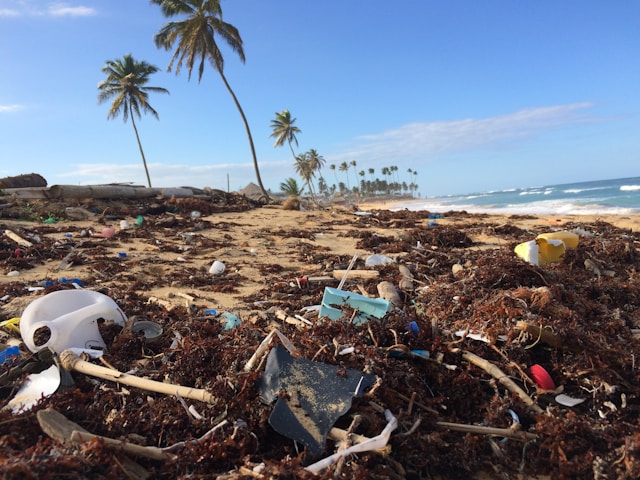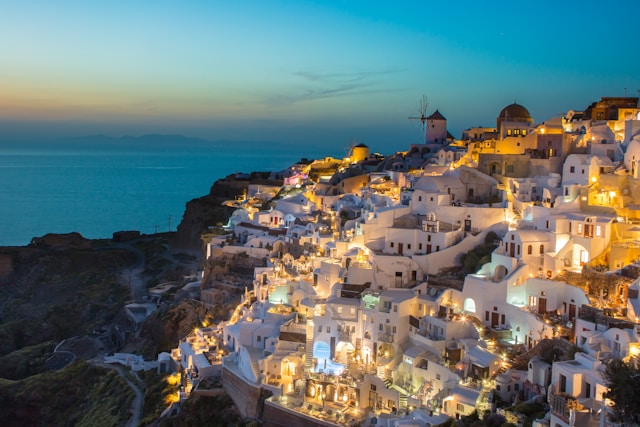Tourism is a vital industry for Greece, contributing significantly to its economy. However, the surge in visitor numbers over the past decade has brought several sustainability challenges. As Greece’s picturesque landscapes, historic sites, and vibrant culture attract millions of tourists annually, the country is grappling with the adverse effects of over-tourism. This article explores why the current levels of tourism in Greece are unsustainable and highlights the environmental, cultural, and infrastructural strains resulting from this phenomenon.
Current Tourism Statistics in Greece
In recent years, Greece has experienced a dramatic increase in tourism. According to the Greek Ministry of Tourism, the country welcomed over 34 million visitors in 2019, a significant rise from 24 million in 2015. While beneficial economically, this growth trend has exacerbated various sustainability issues. Popular destinations such as Athens, Mykonos, and Santorini often face overwhelming tourist influxes during peak seasons, stretching local resources to their limits. The COVID-19 pandemic temporarily reduced tourist numbers, but with restrictions easing, Greece is again seeing a return to pre-pandemic levels, reigniting concerns about sustainable travel in Greece.
Environmental Impact

The environmental impact of overtourism in Greece is profound. The influx of tourists places immense pressure on natural resources, including water and energy supplies. Islands like Mykonos and Santorini, which have limited natural resources, often face severe shortages during peak tourist seasons. Additionally, the increase in tourist activities, such as boating and diving, disrupts marine ecosystems, affecting biodiversity. Waste management is another critical issue, as the existing infrastructure struggles to cope with the additional waste tourists generate. Plastic pollution, particularly on beaches and coastal areas, poses a significant threat to marine life and degrades the natural beauty that attracts tourists in the first place.
The excessive carbon footprint from flights and cruise ships further exacerbates environmental concerns. With its rich biodiversity and numerous protected areas, Greece is particularly vulnerable to the negative effects of climate change, which are accelerated by such tourism practices. Addressing these environmental challenges requires a concerted effort to promote sustainable travel in Greece, including better waste management, reducing carbon footprints, and protecting natural habitats.
Cultural and Social Impact
Tourism’s impact on Greek culture and society is equally significant. While tourism brings economic benefits, it often comes at the expense of local communities. The commercialization of cultural heritage sites, such as the Acropolis in Athens and the ancient ruins in Delphi, leads to overcrowding and diminishes the quality of the visitor experience. Local traditions and lifestyles are also affected, as the influx of tourists can lead to the commodification of culture, where cultural expressions are altered to meet tourist expectations.
Overcrowding in popular areas affects residents’ daily lives and leads to a loss of community identity. In many cases, locals are priced out of their neighborhoods due to rising real estate prices driven by the demand for tourist accommodations. This economic disparity can lead to social tensions and a decline in residents’ quality of life. To mitigate these impacts, it is essential to implement tourism policies that prioritize the well-being of local communities and preserve cultural integrity.
Infrastructure and Resource Strain

The rapid growth of tourism in Greece has significantly strained infrastructure and resources. Roads, airports, and public transport systems often operate beyond capacity, leading to congestion and increased maintenance costs. The demand for tourist accommodations has also driven up housing prices, making it difficult for locals to find affordable housing.
Moreover, the strain on public services such as healthcare and law enforcement becomes more pronounced during peak tourist seasons. Local authorities face challenges in maintaining infrastructure and providing services without compromising residents’ needs. Sustainable travel in Greece policies that focus on improving infrastructure, regulating accommodation options, and ensuring equitable resource distribution are crucial to addressing these challenges.
Case Study: Santorini

Santorini, one of Greece’s most iconic destinations, exemplifies the challenges of overtourism. The island’s population of around 15,000 residents swells to over 2 million tourists annually. This massive influx has led to severe water shortages, waste management issues, and infrastructural strain. To mitigate these effects, the local government has implemented measures such as daily visitor limits for cruise ships and promoting off-peak tourism.
Despite these efforts, more comprehensive strategies are needed to ensure long-term sustainability. Initiatives such as promoting eco-friendly accommodations, encouraging longer stays to reduce turnover, and involving local communities in tourism planning are essential steps toward sustainable travel in Greece.
Potential Solutions
Addressing the sustainability challenges of tourism in Greece requires a multifaceted approach. Promoting sustainable travel in Greece, such as eco-friendly accommodations and responsible travel behavior, is essential. Policy changes, including visitor limits, improved waste management systems, and incentives for sustainable businesses, can help mitigate the adverse effects of overtourism.
Community involvement is crucial for developing and implementing sustainable travel in Greece. Engaging local residents in tourism planning ensures their needs and perspectives are considered. Learning from other regions successfully managing overtourism, such as Iceland and Bhutan, can provide valuable insights for Greece.
For more on sustainable tourism efforts in Europe, explore the Dual Tourism project which aims to enhance vocational education in the tourism sector and promote sustainable practices
Conclusion
Sustainable travel in Greece is not just a necessity but an imperative to preserve its natural beauty, cultural heritage, and community well-being. By adopting responsible tourism practices and policies, Greece can continue to welcome visitors while ensuring a sustainable future for its residents and environment.


